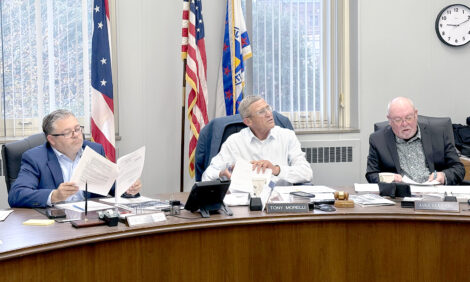Bill attacks retirement contributions
A plan in the state House of Representatives to stop local governments from paying employee contributions to retirement systems for teachers, police officers, firefighters and other public employees won’t save taxpayers much money, according to an analysis by the Ohio Legislative Service Commission.
Greg Lawson, a research fellow with the Buckeye Institute, disagrees.
He likes the proposal and thinks taxpayers could see savings if employees are required to pay their own part.
“LSC assumes that the loss of the pick-up would lead to increased wages, which would offset any savings,” Lawson told The Center Square on Thursday. “That is probably true in many cases, but it is not necessarily true and would differ on a jurisdiction-by-jurisdiction basis. So, there could be savings in some locations and none to even slight increases in others. The Buckeye Institute still thinks this is the right policy for transparency and taxpayer equity, given the already generous public sector match for pensions.”
House Bill 473, in the House Public Insurance and Pensions Committee, stops public employees from collectively bargaining to have public employers pay both the employer and employee share of retirement benefits.
Some public employers pay both sides. Sponsor Rep. Dave Thomas, R-Jefferson, says this allows them to hide the full cost of an employee from the public.
He also thinks the legislation would stop what he calls bidding wars between public agencies that use benefits to attract staff.
“Ohioans should not be paying for the personal pension expenses of public employees. Point blank,” Thomas said in a statement. “Salaries are public and should be an equal comparison across the state with how much the taxpayer is compensating our public servants. Not allowing for the pickup of the employee share for pensions allows for greater transparency and equal playing fields.”
Lawson said employees are the largest expense for local governments and the “leading cause of ever-rising property taxes.”
He termed it “double-dipping” and said the practice funnels money away from public services or leads to tax hikes.
The Ohio Education Association, along with police and firefighter associations, testified against the possible change.
“Pension pickup provisions are not gifts or add-ons; they are negotiated terms of a collective bargaining agreement that often come in exchange for wage restraint or other concessions,” testified Steve Stein of the Ohio Association of Professional Firefighters. “Many of these agreements have existed for decades, providing predictability and fiscal stability for both employers and employees. Prohibiting this provision from the bargaining table will not reduce costs, it will merely shift compensation from one column to another, eroding local flexibility and the good-faith relationships that have taken years to build.”



